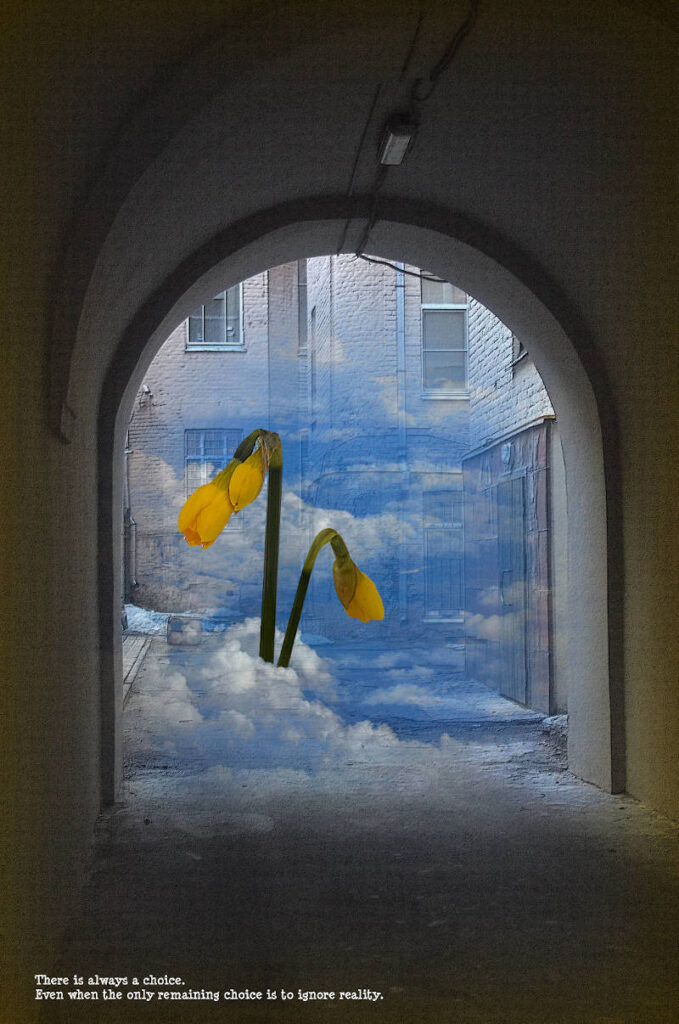
There is always a choice.
Even when the only remaining choice is to ignore reality.
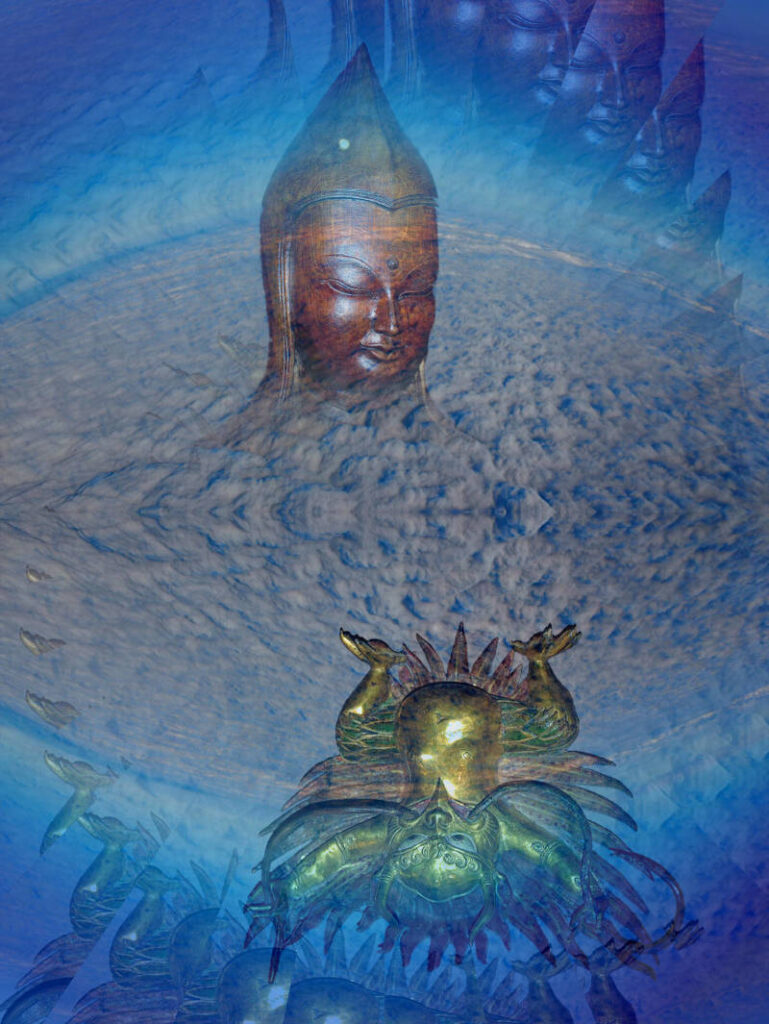
Observation changes the event,
expression changes the thought
but the event does not exist without observation and thought – without expression.
Observation is an integral part of an event, as language is of thought,
they give them their shape.
Good and evil,
mind and body,
love and hate –
they are just words
simplifying the complexity of experience into language.
And yet they determine who we are and what we do.
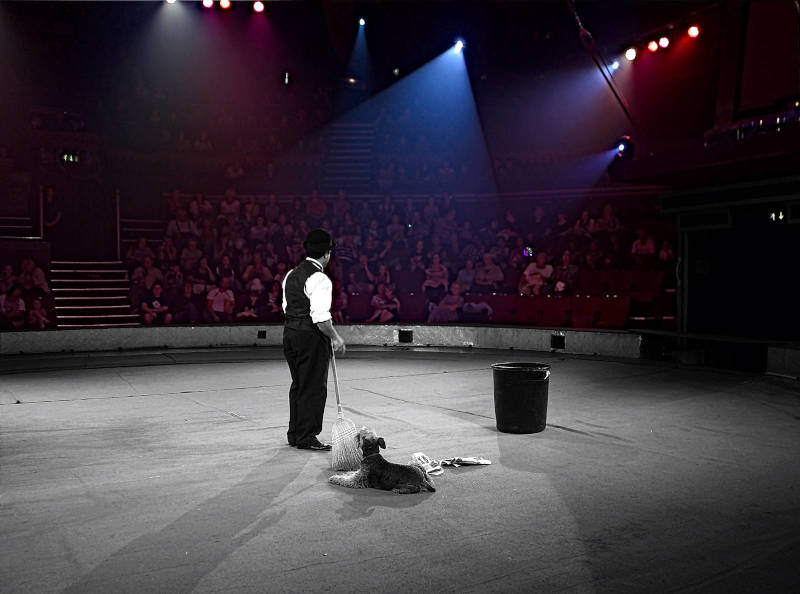
Clowns – the soul of the circus.
Not an act as such – a connection between the worlds.
They engage our empathy and cruelty, provoke kindness and fear…
Coulrophobia is translated as “the fear of clowns”, it means “the fear of self”.
Tell me what makes you laugh and show me who you are.
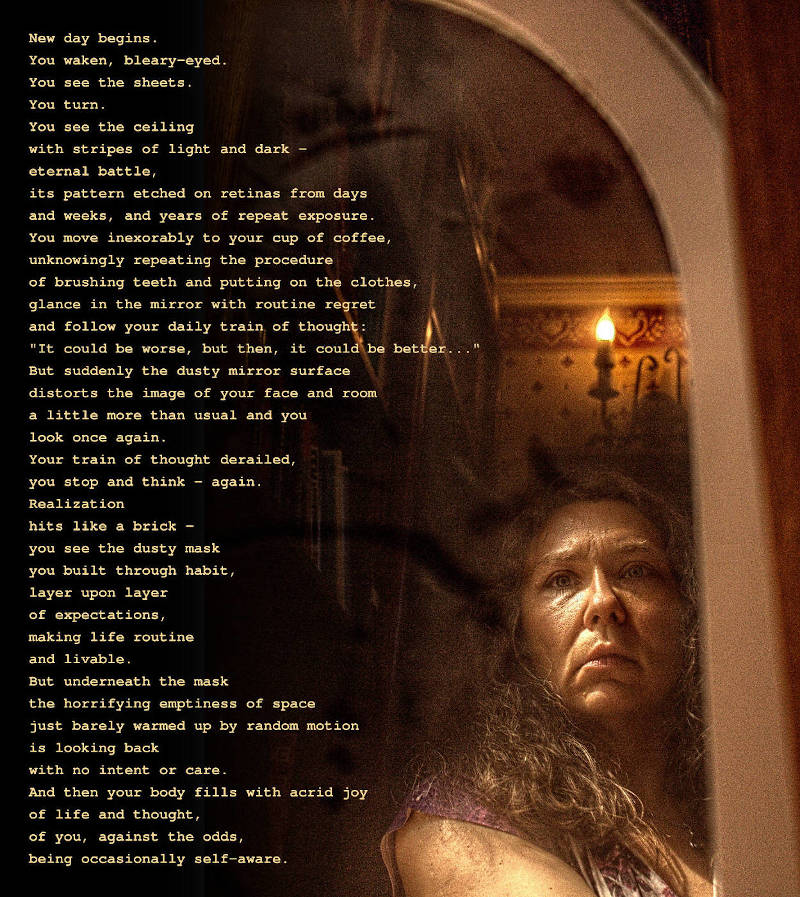
New day begins.
You waken, bleary-eyed.
You see the sheets.
You turn.
You see the ceiling
with stripes of light and dark –
eternal battle,
its pattern etched on retinas from days
and weeks, and years of repeat exposure.
You move inexorably to your cup of coffee,
unknowingly repeating the procedure
of brushing teeth
and putting on the clothes,
glance in the mirror with routine regret
and follow your daily train of thought:
“It could be worse, but then, it could be better…”
But suddenly the dusty mirror surface
distorts the image of your face and room
a little more than usual and you
look once again.
Your train of thought derailed,
you stop and think –
again.
Realisation
hits like a brick –
you see the dusty mask
you built through habit,
layer upon layer
of expectations,
making life routine
and liveable.
But underneath the mask
the horrifying emptiness of space
just barely warmed up by random motion
is looking back with no intent or care.
And then your body fills with acrid joy
of life and thought,
of you, against the odds,
being occasionally self-aware.
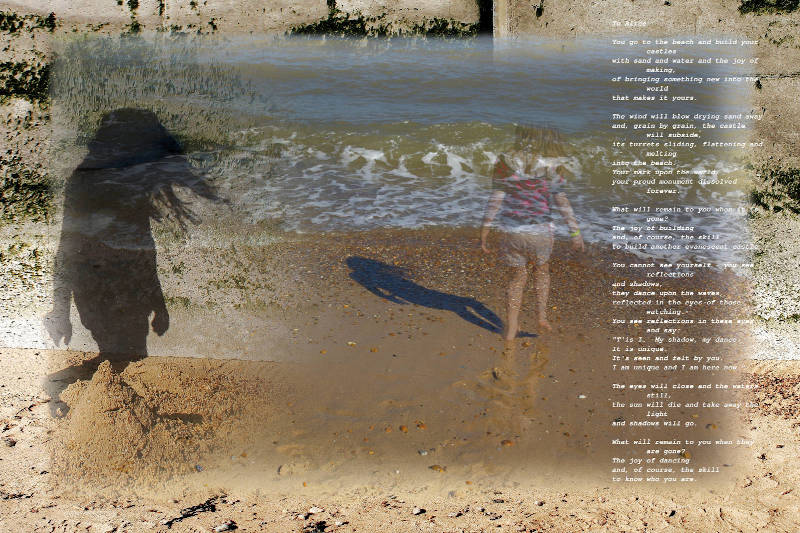
To Calcifer
You go to the beach and build your castles
with sand and water and the joy of making,
of bringing something new into the world
that makes it yours.
The wind will blow drying sand away
and, grain by grain, the castle will subside,
its turrets sliding, flattening and melting
into the beach.
Your mark upon the world,
your proud monument dissolved forever.
What will remain to you when it is gone?
The joy of building
and, of course, the skill
to build another evanescent castle.
You cannot see yourself – you see reflections
and shadows,
they dance upon the waves,
reflected in the eyes of those watching.
You see reflections in these eyes and say:
“T’is I.
My shadow, my dance.
It is unique.
It’s seen and felt by you.
I am unique and I am here now.”
The eyes will close and the waters still,
the sun will die and take away the light
and shadows will go.
What will remain to you when they are gone?
The joy of dancing
and, of course, the skill
to know who you are.
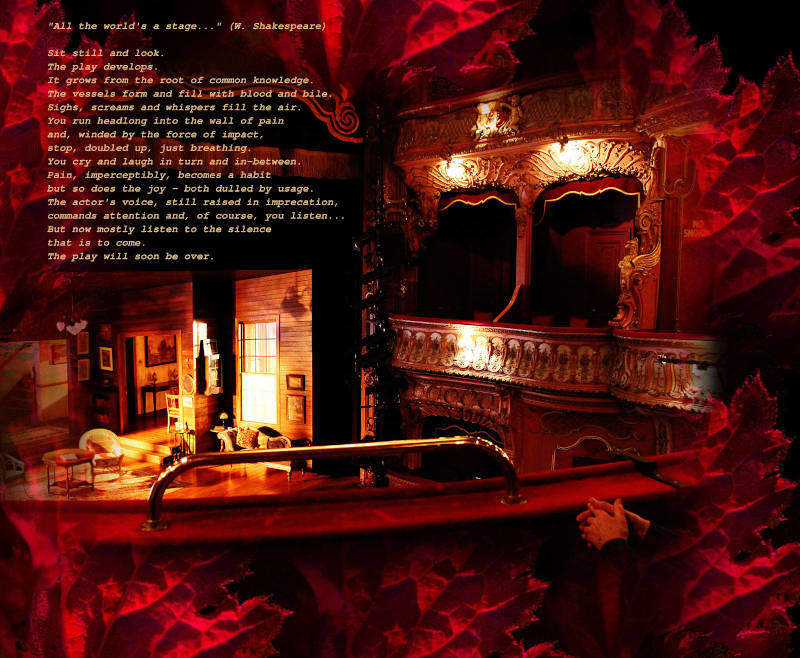
“All the world’s a stage…”
(W. Shakespeare)
Sit still and look.
The play develops.
It grows from the root of common knowledge.
The vessels form and fill with blood and bile.
Sighs, screams and whispers fill the air.
You run headlong into the wall of pain
and, winded by the force of impact,
stop,
doubled up,
just breathing.
You cry and laugh in turn and in-between.
Pain, imperceptibly, becomes a habit
but so does the joy –
both dulled by usage.
The actor’s voice,
still raised in imprecation,
commands attention
and, of course, you listen…
But now mostly listen to the silence
that is to come.
The play will soon be over.
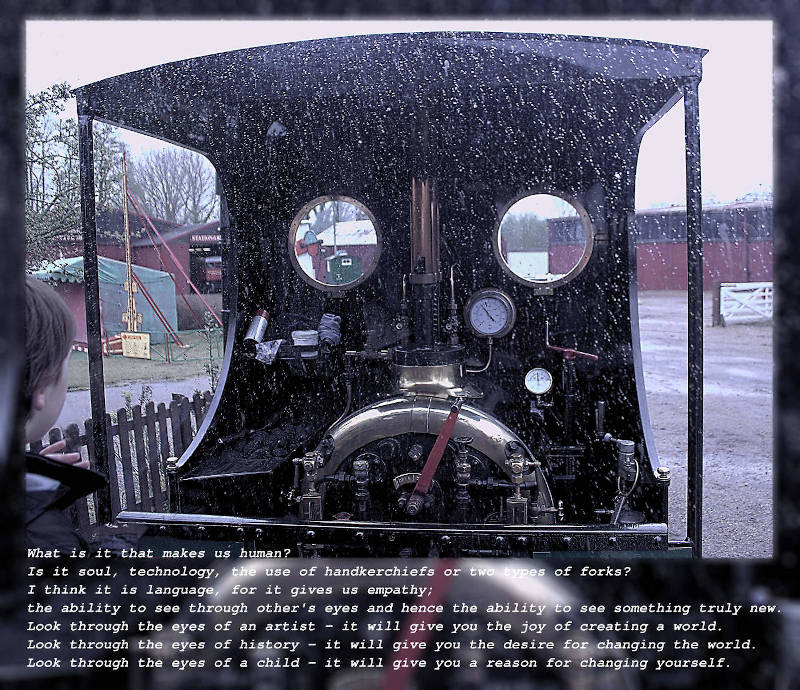
What is it that makes us human?
Is it soul,
technology,
the use of handkerchiefs
or two types of forks?
I think it is language, for it gives us empathy;
the ability to see through other’s eyes
and hence the ability to see something truly new.
Look through the eyes of an artist – it will give you the joy of creating a world.
Look through the eyes of history – it will give you the desire for changing the world.
Look through the eyes of a child – it will give you a reason for changing yourself.
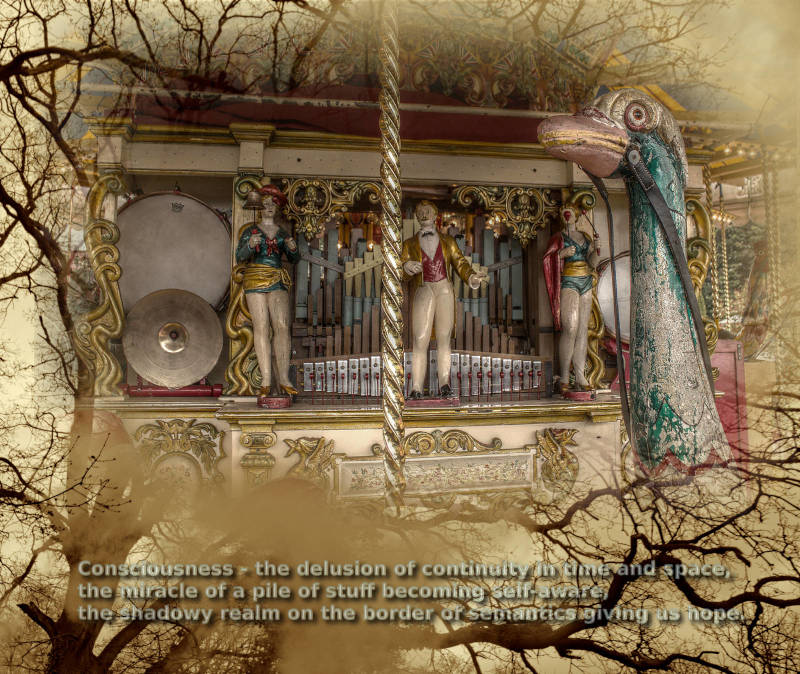
Consciousness – the delusion of continuity in time and space,
the miracle of a pile of stuff becoming self-aware,
the shadowy realm on the border of semantics giving us hope.
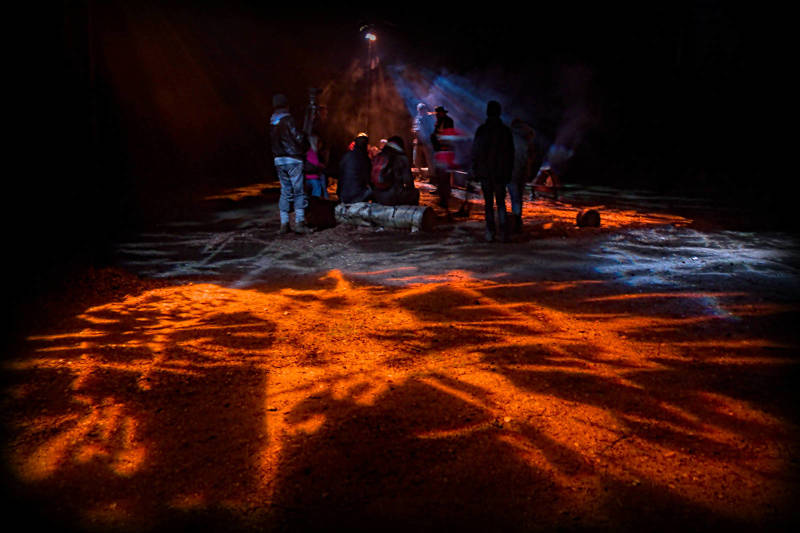
Fear – the most atavistic of our instincts.
Fear of others robs us of our kindness by becoming aggression.
Fear of loss robs us of our freedom by becoming routine.
Fear of death robs us of our dignity by becoming religion.
Fear is why there is nothing more important
than the illusion that monsters do not exist
by the camp-fire in the night.